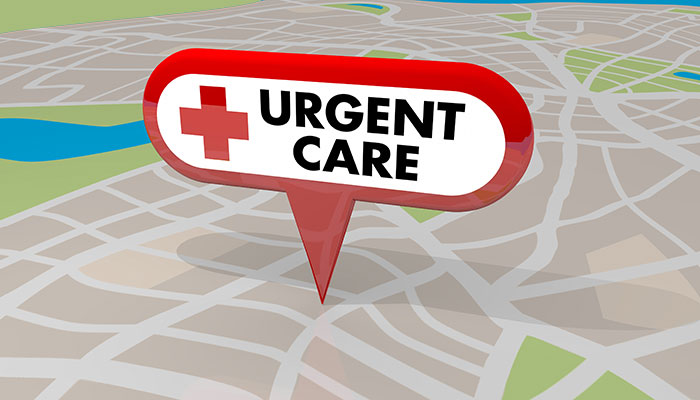Caring Connection News
Helpful tips for family caregivers
August/September 2013
Families in motion…Whether you’re moving through an important life decision, moving quickly in a medical emergency, or literally moving your loved one to a new home, here are caregiving tips to keep you going.
"I can't get Dad to budge!"
Has your loved one ever flatly rejected your perfectly sensible solution to their problem?
Though your idea may seem like the obvious route to take, it’s not so simple when you’re caring for an older adult. Your relative has had a lifetime of making decisions on their own. They usually want to continue doing so.
If you are having trouble agreeing, start with one simple principle:
Take your eye off the goal. Focus on the process instead.
We all want to be treated like people rather than like a project in need of completion. Much as you are concerned about the urgency of change, ask yourself if it’s really worth jeopardizing the trust and long-term communication you share with your relative.
- Involve the person you care for in decision making (assuming they do not have dementia). Do what you can to suggest a range of options so your loved one retains as much control as possible.
- Resist the allure of efficiency. Think in terms of teamwork. Coach yourself that the winning game plan is to go slow and steady. Sure, you could pick out an assisted living facility in a week. But without your relative’s buy-in, you likely won’t get cooperation for the move-in! Embrace compromise. Even if the pace seems too slow and the solutions are not ideal, it’s still progress.
- Honor their feelings. Aging involves so many losses. Acknowledge these losses during a private conversation. “Gosh, Dad, I can tell this is hard to swallow. What can we do to make it easier?” Your goal isn’t to become your parent’s therapist. But sometimes a demonstration of empathy is just what’s needed to melt resistance.
- Give it time. Make your suggestion and if you get resistance, let it rest for a while. Hammering on your points could easily prompt your loved one to become more entrenched. Let the idea percolate. After some time and reflection, your relative may find ways to make the idea their own.
If it truly is an emergency. It’s hard to watch parents struggling. We want to short circuit their distress or immediately reduce their exposure to hazards. But what seems urgent to us may not be to them. (And unless they are legally deemed incompetent, they have the right to make unwise decisions.) The threat to your relationship because you steamrolled an idea cannot be underestimated. If you truly think an urgent change is needed, get a second opinion from a professional. A physician. An Aging Life Care Manager. Someone with training and experience in eldercare. They can give you an objective sense of how quickly action needs to be taken.
Return to topWhat to do with their stuff?
 If you are helping a relative downsize for a move, it is often helpful to sort belongings into four categories:
If you are helping a relative downsize for a move, it is often helpful to sort belongings into four categories:
- items to keep
- items to throw away
- items to sell
- items to give to charity
Items to keep and to throw away have obvious action steps. If you have a lot to dispose of, ask the local waste hauler to drop a debris box at the curb. Be sure to shred anything that includes personal identification information.
Items to sell. There are a variety of options for professional help with reselling.
- Estate liquidators do on-site sales. They review, organize, and price the goods and host a sale in the home. They typically take a percentage fee on what they sell, plus hourly charges. You can find a local referral through the American Society of Estate Liquidators.
- Auctioneers take a fee for selling items off site.
- Consignment shops offer items for a set period of time, such as 30 days. They take a commission on sales. Find out what happens if your items don’t sell.
- Consider selling them on eBay or to an eBay reseller.
Items to donate. Get a dated, itemized receipt from the charity. You can claim a tax deduction for the fair-market value of items in good condition.
Want help with all of it? Once items are sorted, consider hiring
- a senior move manager. They charge an hourly fee and will do everything from packing to coordinating with resellers to taking leftovers to charity. Check with the National Association of Senior Move Managers for someone nearby.
- a junk removal service. These companies can remove everything. Get a cost estimate first (ask if there’s a fee). They resell items, recycle them, or dispose of them at the local landfill. A nice plus: they finish with a thorough cleanup!
Return to top
When to use "urgent care"?
Where do you go? Your relative has distressing symptoms. The primary care doctor’s office is closed, or they don’t have an opening anytime soon. The Emergency Room is open 24/7 but will involve long waits and a lot of stress.
An urgent care center is a great middle ground. It’s generally convenient—open evening hours—and is less crowded than the ER. Your relative will be seen fairly quickly. Consider urgent care if the situation deserves prompt attention (within 24 hours) but is not life threatening.
Appropriate conditions for urgent care include the following:
- Aches and pains from a muscle sprain
- Sore throat, sinus pain, urinary tract or other infection
- Skin wound or swelling, such as from a skin tear or insect bite
- Diarrhea or other digestive upset
- Broken finger or toe
Treatment may be provided by a nurse practitioner or physician assistant. Some centers also have doctors on staff. Most urgent care centers can conduct basic blood work and other common diagnostic tests.
Go to the ER if your loved one has a more-severe condition.
This is the choice when time is of the essence, when your relative needs immediate attention by a doctor. (If the person you care for has a complex medical history, you might elect to go to the ER even if the situation is not dire. The ER is staffed by doctors who have easy access to specialists. They can determine if symptoms are related to your relative’s other conditions.)
Situations that call for the Emergency Room include the following:
- Chest pain or pressure
- Trouble breathing
- Compound bone fracture (bone has broken through the skin)
- Head injury
- Seizures
- Sudden paralysis or weakness on one side of the body (stroke)
- Severe pain anywhere (head, abdomen)
- Uncontrolled bleeding
Make plans ahead of a crisis.
- What are the centers closest to your loved one’s house?
- Which one does their primary care doctor recommend?
- What are the hours?
- Is a doctor always on site?
- Is the center on your family member’s insurance plan? If your loved one has Medicare Advantage, for instance, you may be restricted to centers within the network.
Ask for a treatment statement before you leave.
This is equally true for the ER or urgent care. As soon as possible, contact your loved one’s primary care doctor. Let the doctor know what treatment was provided and schedule a follow-up office visit, if advised.

